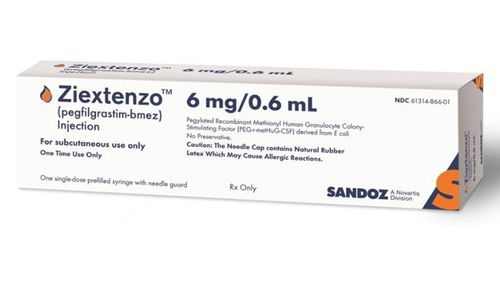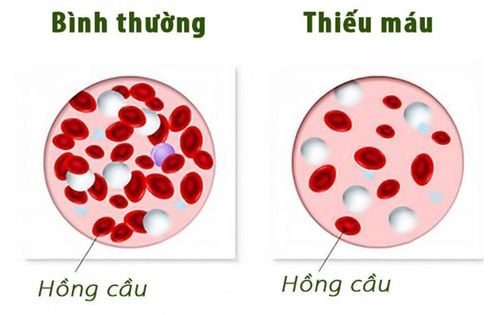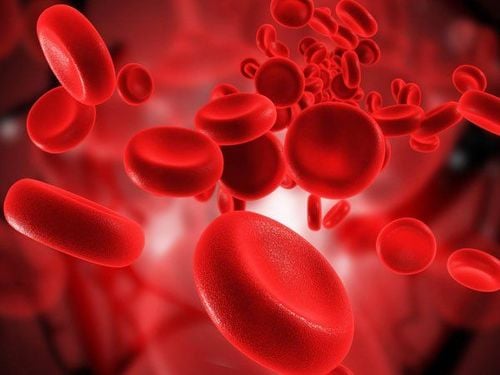This is an automatically translated article.
Blood test to know the patient's blood type before blood transfusion. Determine the mother's blood group to assess the risk of blood type incompatibility between mother and child.1. When to determine blood group?
Cases where blood type determination is requiredBlood test to know the blood group of the donor and recipient before blood transfusion. Blood test to know the blood type of the person who wants to register to donate organs, tissues, bone marrow. Blood group determination is performed to assess the compatibility between the donor and the recipient. Blood test to know blood group for the purpose of determining bloodline. Determine the blood group of women who want to have children to assess the risk of incompatibility of blood factors between mother and child.
2. Why is it necessary to determine blood group?
When transferring blood from one person to another, it is necessary to do a blood group test to know the blood group of the donor as well as the recipient, there may be reactions, mild may be fever or hypersensitivity to intravascular hemolysis. , severe can cause shock and potentially lead to death.3. What blood groups are there?
A blood group test can find ABO and Rh antigens. These are the two main, most common and important blood group systems.3.1 ABO Blood Group System Human blood is grouped according to the presence or absence of A and B antigens. A person's serum normally does not contain antibodies to match antigens on the surface of red blood cells. . Therefore, classified according to the ABO blood group system, there are the following blood groups:
A blood group: on the red blood cell membrane contains antigen A, does not contain anti-A antibodies, contains anti-B antibodies. Blood group B: the red blood cell membrane contains B antigens, does not contain anti-B antibodies, and contains anti-A antibodies. Blood group AB: on the red blood cell membrane there are both A and B antigens, there are no anti-A and anti-B antibodies. Blood group O: there are neither A nor B antigens on the red blood cell membrane and both anti-A and anti-B antibodies. 3.2 Rh blood group system The presence or absence of Rh antigens on the surface of red blood cells determines whether the blood group is Rh positive (+) or Rh negative (-).
In addition to the two blood group systems ABO and Rh, scientists also found 9 different genetic codes when analyzing blood samples, however, most of these systems are uncommon, of little importance and do not have a significant influence. during clinical examination.
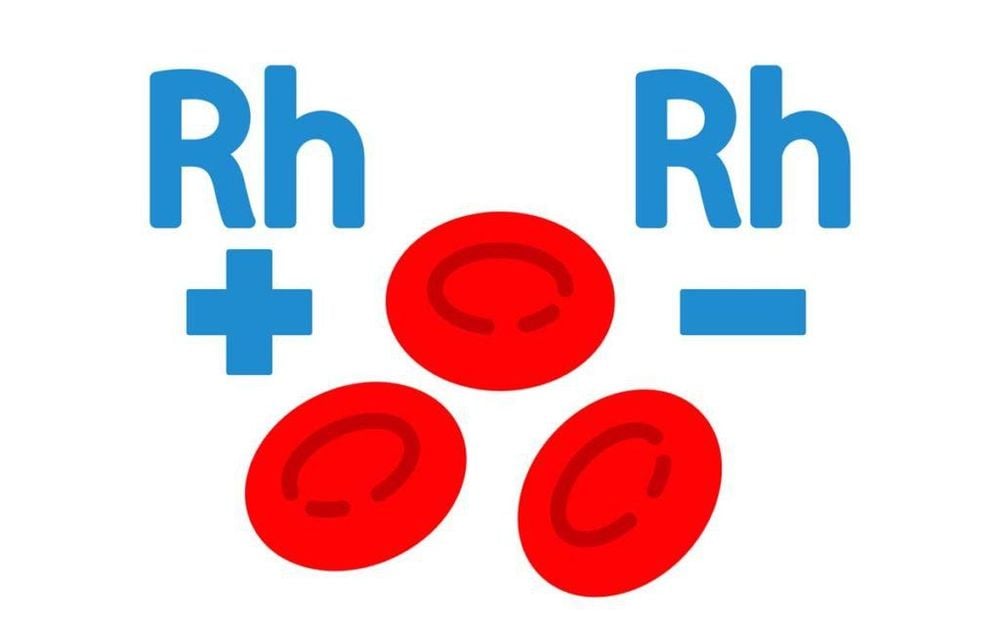
Hệ nhóm máu Rh
4. Principles of blood transfusion
The principle of blood transfusion is that the recipient does not have antibodies against the donor's red blood cells.Blood group A can be transfused to people with blood type A, or people with blood group AB; and receive blood transfusions from people with blood group O. Blood group B can be transfused to people with blood group B, or people with blood group AB; and receive blood transfusions from people with blood group O. Blood type AB can only be transfused with people with blood type AB; and received all blood types because there were no antibodies to react with the transfused blood. Blood type O can be transfused to all other blood types; but can only receive blood transfusions from people with blood type O because there are no antigens on red blood cells. Cases of donor ABO antibodies against the recipient antigen are very rare.
After ABO compatibility, Rh is the next important antigen affecting blood transfusion.
5. Notes on blood transfusion
Type O blood is often given in emergency situations, for example in cases of rapid and life-threatening blood loss that requires an immediate blood transfusion. When using blood group O, the cases of transfusion reactions are minimal.Women who give birth should receive type O- blood, and men usually receive O+ blood during an emergency transfusion, before a cross-reaction is performed.
ABO blood group is not required for self-transfusion. However, at most hospitals, ABO blood group testing is done for patients who need blood in stock to continue to be transfused when needed.
Besides A and B antigens there are many other types of antigens. If you have a rare blood type, you may have some difficulty getting a blood transfusion because the incompatibility will cause a transfusion reaction.
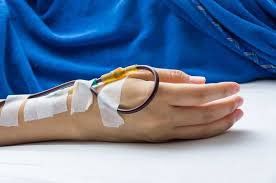
Nhóm máu O thường được truyền trong các tình huống khẩn cấp
6. The process of performing a blood test to know the blood group
The healthcare professional draws blood by:Wrap a cloth band around your arm to stop the blood from circulating; Disinfect the injection site to draw blood with alcohol; Using a needle into a vein to draw blood, can inject more than 1 time if necessary; Attach a tube so the blood can drain; Remove the bandage around the arm after sufficient blood has been drawn; Use gauze or medical cotton to apply to the injection site to draw blood; Place a bandage on the injection site where blood was drawn. The doctor or nurse collects a blood sample in a test tube, taking care to avoid hemolysis, and puts a label on the blood tube before sending it into the laboratory.
7. Which hospital can perform blood group determination?
Vinmec Hai Phong International General Hospital is the only hospital in Hai Phong city that owns a very modern Wadiana fully automatic blood grouping machine from Spain, allowing the ABO blood grouping technique to be performed. Rh (D) on an automaton.This automatic blood grouping allows to minimize possible errors compared to manual methods. In addition, with a team of qualified doctors: Doctor Pham Thi Thuy Nhung and technicians with strict, rigorous, disciplined testing procedures, and compliance with regulations, helping to ensure an accuracy. absolute way.
Please dial HOTLINE for more information or register for an appointment HERE. Download MyVinmec app to make appointments faster and to manage your bookings easily.





